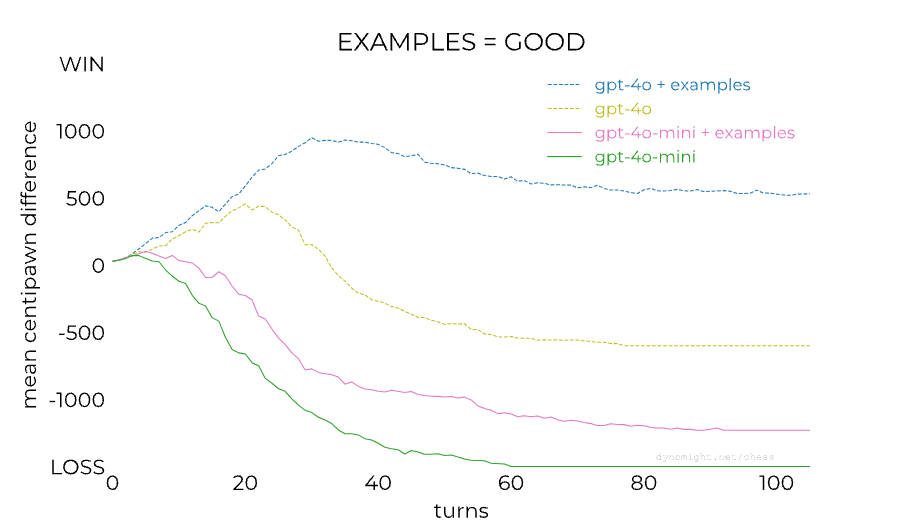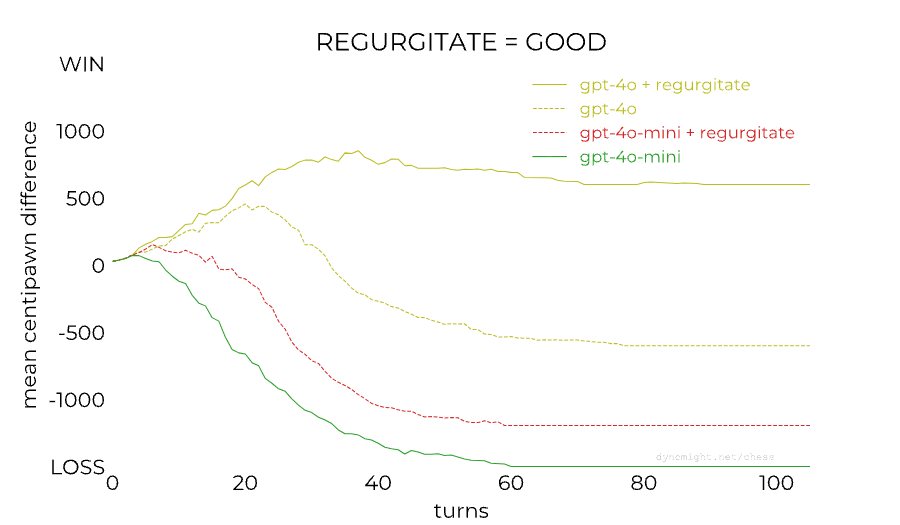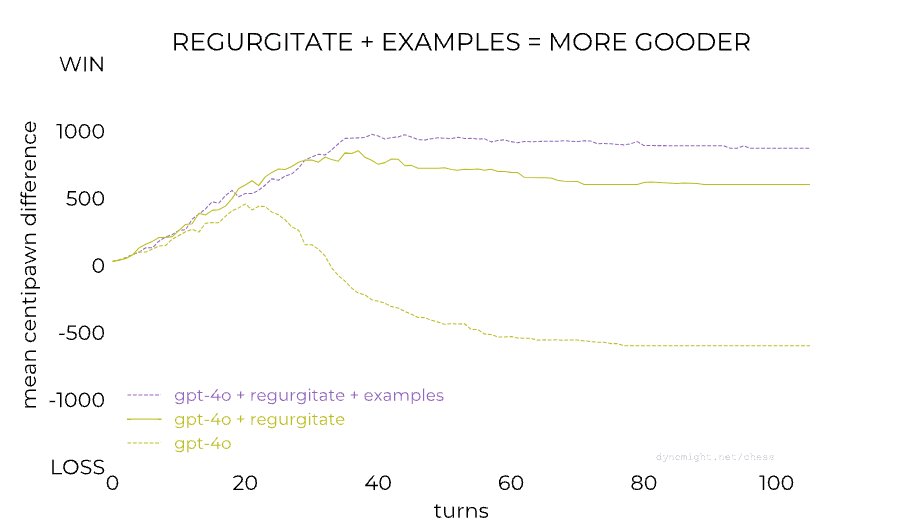Wiki Contributions
For context, average US electricity consumption in 2022 was ~500GW. So these would be ~1% of all US electricity consumption (as an order of magnitude)
A grandmaster just lost a classical game (60''+30'') against Leela Knight Odds https://lichess.org/broadcast/leela-knight-odds-vs-gm-joel-benjamin/game-5/MbKHEbdb/7Tnz8uBj
3 days ago an international master gave Leela "very slim chances" of winning a game, based on the results of a match played by a previous version of the engine

Conversely, if you don't see any success after 3n attempts you have a 95% confidence interval that 0 < p < 1/n (unless you have a strong prior)
https://en.wikipedia.org/wiki/Rule_of_three_(statistics)
I understand that the current pope is Pope Francis, but I know much much more about the worldviews of folks like Joe Carlsmith or Holden Karnofsky, compared to the pope.
That makes sense, thanks. I would say that compared to Catholicism, in EA you have much less reason to care about the movement leaders, as them having authority to rule over EA is not part of its beliefs.
I don't literally think that every EA should book plane tickets to Africa, or break into a factory farm, or whatnot. (though: I would love to see some folks try this!)
For what it's worth, I've talked with several people I've met through EA who regularly "break" into factory farms[1] or who regularly work in developing countries.
It's definitely possible that it should be more, but I would claim that the percentage of people doing this is much higher than baseline among people who know about EA, and I think it can have downsides for the reasons mentioned in 'Against Empathy.'
- ^
They claim that they enter them without any breaking, I can't verify that claim, but I can verify that they have videos of themselves inside factory farms.
Sorry, I don't feel like I understand this point — could you expand on this, or rephrase?
As a personal example, I feel really aligned with EA principles[1], I feel much less sure about CEA as an organization.[2]
If the frame becomes "EA is what CEA does", you would lose a lot of the value of the term "EA", and I think very few people would find it useful.
See why effective altruism is always lowercase, and William MacAskill "effective altruism is not a package of particular views."
My understanding is that you agree with me, while Elizabeth would want effective altruism to be uppercase in a sense, with a package of particular views that she can clearly agree or disagree with, and an EA Leader that says "this is EA" and "this is not EA." (Apologies if I misunderstood your views)
"CEA as an institution is taking more of a leadership role" could be interpreted as saying that CEA is now more empowered to be the "EA Leader" that decides what is EA, but I think that's not what you mean from the rest of your comment.
Does that make sense?
- ^
For me EA principles are these ones:
I think these are principles that most people disagree with, and most people are importantly wrong.
I think they are directionally importantly right in my particular social context (while of course they could be dangerous in other theoretical contexts)
- ^
Despite thinking that all people I've interacted with who work there greately care about those same principles.
I think I'm reasonably Catholic, even though I don't know anything about the living Catholic leaders.
This might be a bit off-topic, but I'm very confused by this. I was raised Catholic, and the Wikipedia description matches my understanding of Catholicism (compared to other Christian denominations)
The core beliefs of Catholicism are found in the Nicene Creed. The Catholic Church teaches that it is the one, holy, catholic and apostolic church founded by Jesus Christ in his Great Commission, that its bishops are the successors of Christ's apostles, and that the pope is the successor to Saint Peter, upon whom primacy was conferred by Jesus Christ.
Do you not know who the living Pope is, while still believing he's the successor to Saint Peter and has authority delegated from Jesus to rule over the entire Church?
Or do you disagree with the Wikipedia and the Catholic Church definitions of the core beliefs of Catholicism?
Definitely think that on the margin, more "directly verifying base reality with your own eyes" would be good in EA circles. Eg at one point, I was very critical of those mission trips to Africa where high schoolers spend a week digging a well; "obviously you should just send cash!" But now I'm much more sympathetic.
I'm confused by this as well. All the people I know who worked on those trips (either as an organiser or as a volunteer) don't think it helped their epistemics at all, compared to e.g. reading the literature on development economics. I definitely think on the ground experience is extremely valuable (see this recent comment and this classic post) but I think watching vegan documentaries, visiting farms, and doing voluntourism are all bad ways to improve the accuracy of your map of actual reality.
RE: “ea would be better served by the by having leadership that actually was willing to own their power more”
I would say that under Zach, CEA as an institution is taking more of a leadership role, and people within CEA are more empowered to “own our power”.
I think this would be a mistake (or more likely I think you and Elizabeth mean different things here.)
As you mention in other parts of your comment, most people who consider themselves aligned with EA don't know or care much about CEA, and coupling their alignment with EA as principles with an alignment with CEA as an organization seems counterproductive.




I think it's because 10+5 is very different from 60+30